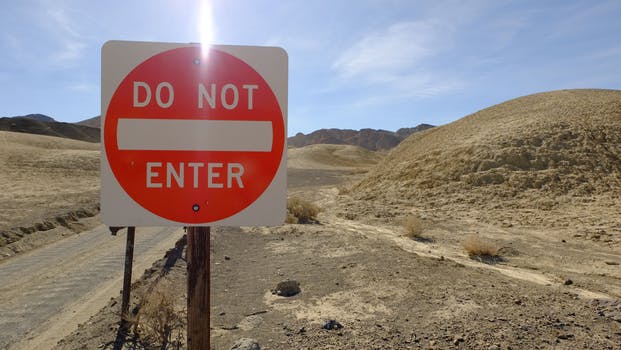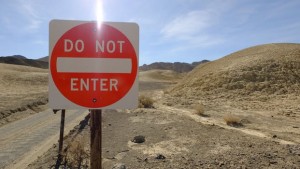 When I was a kid I remember being a part of this kid’s production, or concert at our church. It was really enjoyable but I remember a story they told us that I have never forgotten. As part of the preparation for the concert we would have practices and these would always start with some sort of devotional. One day they told us the story of how you can boil a frog alive. Supposedly frogs will adapt to the environment around them, so if you put a frog in room temperature water and slowly raise the temperature the frog will sit in the water until it is boiled alive.
When I was a kid I remember being a part of this kid’s production, or concert at our church. It was really enjoyable but I remember a story they told us that I have never forgotten. As part of the preparation for the concert we would have practices and these would always start with some sort of devotional. One day they told us the story of how you can boil a frog alive. Supposedly frogs will adapt to the environment around them, so if you put a frog in room temperature water and slowly raise the temperature the frog will sit in the water until it is boiled alive.
As a kid I remember being horrified because I thought, “Wait how did they find this out unless they actually boiled a frog?”
Now if that frog story doesn’t haunt you at night maybe the passage we are looking at today will. We are going to be taking a look at the time Jesus freed a demon-possessed man in Luke chapter 8 verses 26-39.
Luke 8:26 says, “Then they sailed to the country of the Gadarenes, which is opposite Galilee.”
The verse starts out with “Then they” which indicates that the passage we are looking at is a continuation of the passage before it. For the setting we are going to have to turn back to verses 22-25
“Now it happened, on a certain day, that He got into a boat with His disciples. And He said to them, ‘Let us cross over to the other side of the lake.’ And they launched out. But as they sailed He fell asleep. And a windstorm came down on the lake, and they were filling with water, and were in jeopardy. And they came to Him and awoke Him, saying, ‘Master, Master, we are perishing!’ Then He arose and rebuked the wind and the raging of the water. And they ceased, and there was a calm. But He said to them, ‘Where is your faith?’ And they were afraid, and marveled, saying to one another, ‘Who can this be? For He commands even the winds and water, and they obey Him!’”
So now looking at the context we can identify the setting of verse 26. We have the who: Jesus and His disciples. We have the where: Gadarenes. Gadarenes is not really a town but rather it is a term used to refer to the small villiages surrounding the larger town Gadara. From historical context we know that this region was populated by both Jews and non-Jews. Although we don’t know the exact town Jesus comes too, most scholars would agree that Jesus has come to a Jewish settlement some where in the area surrounding Gadara. We also sort of have the when: the day after “a certain day”.
Now that we have the setting lets look at what happens.
Luke 8:27 says, “And when He stepped out on the land, there met Him a certain man from the city who had demons for a long time. And he wore no clothes, nor did he live in a house but in the tombs.”
Once Jesus and His disciples land in Gadarenes a man comes up to Him who has been demon possessed for a very long time, and we are given a few details about the man.
Clearly, he is not doing the greatest spiritually, I mean he is demon possessed. His spiritual health has had a negative effect on other parts of his life as well. Physically he is running around naked, and socially he has been separated from his family and community and is living in the tombs. His entire life is in shambles, and he has lost everything that makes him human.
Then it continues in Luke 8:28-29
“When he saw Jesus, he cried out, fell down before Him, and with a loud voice said, ‘What have I to do with You, Jesus, Son of the Most High God? I beg You, do not torment me!’ For He had commanded the unclean spirit to come out of the man. For it had often seized him, and he was kept under guard, bound with chains and shackles; and he broke the bonds and was driven by the demon into the wilderness.”
Immediately when the man sees Jesus he runs up to Him and begs Jesus not to torment him. I am not sure if this is a demon speaking through the man or if he has been possessed for so long that he identifies with the demon but either way he is completely filled with terror and recognizes the authority Jesus has over him.
This is pretty amazing considering what verse 29 tells us. The people of the town had made attempts to control him before, even using chains and placing a guard to watch over him. But they were powerless to control the demon. But he simply sees Jesus and He commands them to come out and the demon is filled with terror and literally grovels before Him asking for mercy.
Looking at the description of the man doesn’t it seem like something out of a horror movie?
Our society seems to be obsessed with the supernatural if you look at all the movies that are made about demon possession, but what many of them get wrong is that they present the possession like a battle between the demon and whatever source of good is in the movie. It always seems like the good guys are barely able to defeat the demon, when in reality Jesus has complete authority over them and they are fully aware of it. It is not a battle between two equally powerful enemies. The forces of evil are no match for Jesus.
It continues in Luke 8:30-33
30 Jesus asked him, saying, “What is your name?”
“And he said, ‘Legion,’ because many demons had entered him. And they begged Him that He would not command them to go out into the abyss. Now a herd of many swine was feeding there on the mountain. So they begged Him that He would permit them to enter them. And He permitted them. Then the demons went out of the man and entered the swine, and the herd ran violently down the steep place into the lake and drowned.”
Jesus asks the demon what his name is and the demon responds “Legion”
A legion is unit of Roman soldiers. And a full legion is 6,000 soldiers. The situation was terrible enough before but as we can see its even worse.
Can you imagen the torment this man must have been going through, constantly night and day filled with thousands of demons? We have seen in other accounts of how terrible one demon can be, now imagen thousands.
The demons then ask Jesus to not send them into the abyss, which seems to be a place of torment even for demons, and instead be sent into a herd of pigs nearby. And Jesus does it.
I am not exactly sure why Jesus allows the demons’ request, in one of the commentaries I read it suggested that it was so that the man could see the true nature of the spirits that were inside him. That any seductive nature that might have appealed to him when he originally opened himself up to their influence would be gone when he saw that even in something as insignificant as a pig their only desire was to destroy.
This shows us the true nature of demons and evil spirits. No matter how innocent or interesting messing with the spirits may appear in media it is nothing to mess around with.
People will play with Ouija boards, mediums, psychics, and other stuff like that and think that it is innocent, but it is not. The only spirit we should be reaching out to is the Holy Spirit. Any spirit not of God is of the devil and we who have been saved from the power of sin have no business diving back into it.
So after all this, the next verses give us two different responses to what Jesus did.
Luke 8:34-39 says,
“When those who fed them saw what had happened, they fled and told it in the city and in the country. Then they went out to see what had happened, and came to Jesus, and found the man from whom the demons had departed, sitting at the feet of Jesus, clothed and in his right mind. And they were afraid. They also who had seen it told them by what means he who had been demon-possessed was healed. Then the whole multitude of the surrounding region of the Gadarenes asked Him to depart from them, for they were seized with great fear. And He got into the boat and returned. Now the man from whom the demons had departed begged Him that he might be with Him. But Jesus sent him away, saying, ‘Return to your own house, and tell what great things God has done for you.’ And he went his way and proclaimed throughout the whole city what great things Jesus had done for him.”
After Jesus frees the demon possessed man and sends the demons into the pigs, the people who were looking after the pigs run back and tell everyone what they saw. The people of the town come and see the man who had formally been naked and controlled by demons fully clothed and in his right mind sitting at the feet of Jesus. But instead of praising Jesus or welcoming the man they ask Jesus to leave. Why did they ask Jesus to leave? What were they afraid of?
Hang with me here because I am going to ask you to dig a little deeper. From best we know the people in the town Jesus went to were Jewish. Jesus sent the demons into a herd of pigs near by. We know from historical documents that in this area there were Jewish pig farmers.
Now according to Leviticus 11 and Deuteronomy 14 Jews are not permitted to eat or touch the dead body of pigs and other unclean animals.
Some Jews still farmed pigs because the Roman soldiers and other non-Jews still ate them and they could make a lot of money. But these people were not looked on very highly. In many cases they were seen as almost a lower class. Other Jews wouldn’t marry them and sometimes wouldn’t even get close enough to touch them.
In order to farm pigs they were almost always unclean, and often times they were selling the pigs to people who were actively oppressing the Jewish people, such as Roman soldiers. Not only this but often times Jewish communities who farmed pigs were involved in other unlawful practices, and had forsaken many of God’s commandments.
They were afraid because they saw the power that Jesus had over the demons that were controlling this man, they saw the way He had changed his life, and they thought, “What is He going to do when He comes to our village and sees our lives?”
“What is He going to do when the sins in our lives and they ways we have been forsaking God’s law are revealed?” Jesus has power over the demons, but even more importantly He has the power to change lives, and that terrified them.
It terrified them because sometimes the Hell that we are accustomed to is more comfortable then the Heaven we don’t know.
Most people are terrified of change and no matter how terrible, wicked, or miserable our lives our, many of us will choose to stay the way we are because we know it. We have learned how to live with our sins and with our faults and although its not easy its familiar.
Jesus didn’t come across the demon possessed man and make it a little more convenient for him to continue to live the way he was. Jesus came and destroyed his way of life and changed it completely, because Jesus didn’t want him to continue living this way. He wanted the man to have an abundant life and that required a dramatic change.
These people came face to face with Jesus recognized His power and instead of asking Him to change their lives they sent Him away for the sake of the familiar.
By contrast the man who Jesus healed asked to come with Jesus and Jesus told him to go back to the town and tell people what God had done in his life.
When Jesus sent the man back he went and told people about what Jesus had done in His life. He told people about the power of God and because of that God was glorified. It is amazing the see the power that Jesus had to change his life. He took a man who was running around in the tombs naked, and after a brief encounter Jesus turned him into a man who is running through the town and country side telling others about the glory and power of God.
That’s what Jesus wants for us. He wants to come into our lives and change us from the inside out. He wants to deal with all the sin and filth in our lives and send us off so we can glorify Him.
He wants to make us evidence of His power and glory. What a great privilege it is to have a God who not only can change us and bring us into a relationship with Him but who also wants to use us to bring others too Him. He wants to use us to glorify His name.
God’s challenge for us today is to allow Him to come in and change our lives. Surrender all of the sins and filth in our lives and submit to His power to change us. Then we need to go out and glorify Him. We need to live lives that are evidence of His work in our life, and to give a testimony of His goodness and love to the people around us.



















